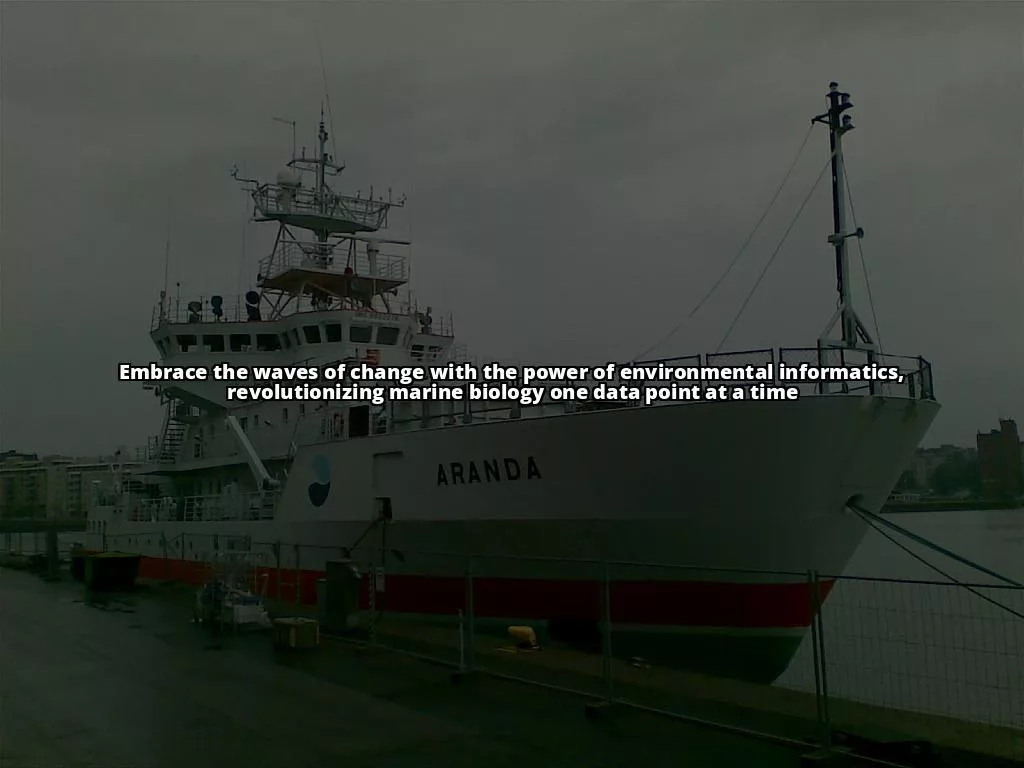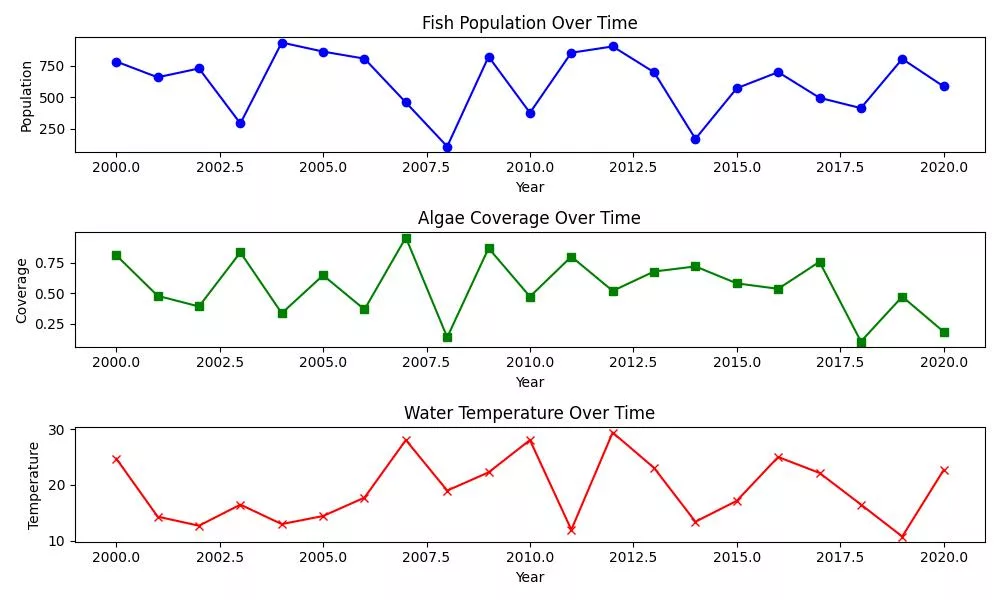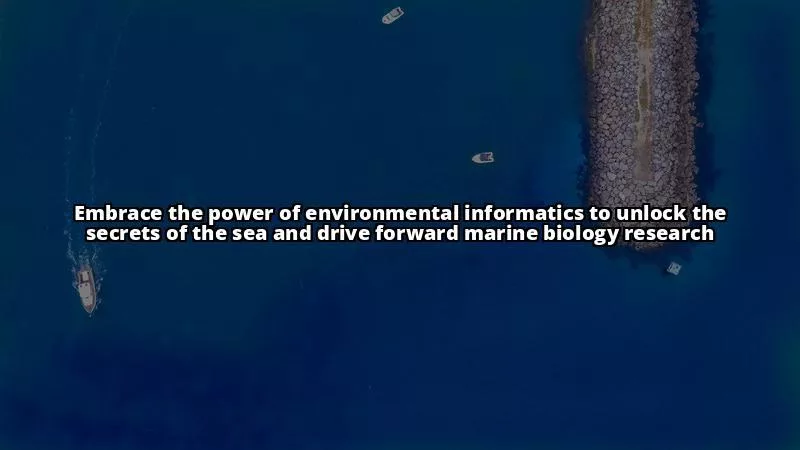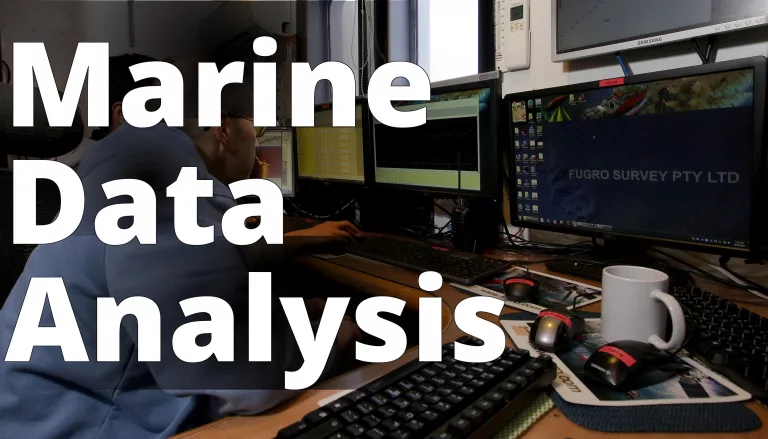Informatics, the science of processing and analyzing complex data, has revolutionized the way marine biologists collect, analyze, and interpret information about marine ecosystems. By harnessing the power of informatics, researchers can make sense of vast amounts of data, uncover patterns, and make evidence-based decisions to support marine conservation efforts.
Environmental informatics is playing a crucial role in revolutionizing marine biology through various advancements and approaches:
- Integrated Observations and Informatics: The integration of marine biological observations and informatics is enhancing the understanding of changing marine ecosystems. This approach contributes to policy development, management, and the rapid incorporation of new scientific findings into assessments and marine policy.
- Machine Learning in Marine Ecology: Machine learning techniques are being applied to better understand ecological systems by combining diverse sources of marine data. This includes strategies to scale efforts, train new scientists, and foster interdisciplinary collaboration between marine ecologists and computer scientists.
- Holistic Approach to Marine Eco-Systems Biology: A multidisciplinary approach aims to generate systematic, open-access datasets for probing the morphological and molecular makeup of ocean ecosystems. Initiatives like the Tara Oceans consortium are exploring global ocean biodiversity by integrating genetic, morphological, and functional diversity at a global scale.
- Technological Innovations: Technologies such as informatics are crucial in saving our oceans. NOAA’s technology partnerships are actively working on solutions to address significant challenges in ocean conservation.
- Ocean Biodiversity Informatics: Ocean biodiversity informatics involves using computer technologies to manage marine biodiversity information, including data capture, storage, and search. This approach marks a new era in marine biology research and management.
Advantages of Integrating Informatics in Marine Biology Research
The integration of informatics in marine biology research offers numerous advantages, including enhanced data accuracy, improved efficiency in data analysis, and the ability to visualize complex data sets. By leveraging informatics tools and technologies, marine biologists can gain a deeper understanding of marine ecosystems and make informed decisions to promote biodiversity conservation and sustainable management practices.

Data Collection Technologies in Marine Biology
Remote Sensing Technologies in Marine Data Collection
Remote sensing technologies, such as satellites and drones, play a crucial role in collecting data on ocean temperatures, sea surface conditions, and marine biodiversity. These technologies provide researchers with real-time information about remote marine areas, allowing for comprehensive monitoring and assessment of marine ecosystems.
Use of Acoustic Monitoring for Marine Research
Acoustic monitoring involves using sound waves to study marine organisms, including fish, marine mammals, and invertebrates. By listening to the sounds of the ocean, researchers can track the movements of marine species, assess population dynamics, and monitor changes in marine habitats over time.
Utilization of Underwater Sensors in Data Collection
Underwater sensors, equipped with various environmental sensors, are deployed in marine environments to collect data on water quality, temperature, salinity, and other crucial parameters. These sensors provide valuable insights into the health of marine ecosystems and help researchers identify environmental changes and potential threats to marine biodiversity.

Data Analysis Technologies in Marine Biology
Geographic Information Systems (GIS) in Marine Data Analysis
GIS technology enables marine biologists to visualize and analyze spatial data related to marine ecosystems. By mapping marine habitats, tracking species distributions, and identifying conservation priorities, GIS plays a key role in informing marine management decisions and conservation strategies.
Statistical Analysis Methods in Marine Biology Research
Statistical analysis methods are essential for interpreting and drawing conclusions from complex marine data sets. From population assessments to trend analysis, statistical techniques help researchers identify patterns, relationships, and trends in marine biological data, supporting evidence-based decision-making in marine conservation and management.
Application of Machine Learning Algorithms in Marine Data Analysis
Machine learning algorithms are increasingly being used in marine biology research to analyze large and diverse data sets. By training algorithms to recognize patterns and predict outcomes, researchers can gain new insights into marine ecosystems, species interactions, and the impacts of environmental changes on marine biodiversity.

Environmental Monitoring Technologies in Marine Biology
Tracking Marine Species Using Informatics
Informatics tools facilitate the tracking and monitoring of marine species, allowing researchers to study their movements, behaviors, and population dynamics. By integrating tracking data with environmental variables, researchers can gain insights into species interactions, migration patterns, and the impacts of environmental changes on marine biodiversity.
Related article: Noise Monitoring Technologies
Importance of Water Quality Monitoring in Marine Biology
Water quality monitoring is essential for assessing the health of marine ecosystems and identifying pollution sources that threaten marine biodiversity. By monitoring key water quality parameters, such as nutrient levels, pH, and dissolved oxygen, researchers can evaluate the impacts of human activities on marine environments and develop strategies to protect water quality and marine habitats.
Related article: IoT for Water Quality Monitoring
Studying Climate Change Impacts Through Informatics
Informatics tools are instrumental in studying the impacts of climate change on marine ecosystems, from rising sea temperatures to ocean acidification. By analyzing climate data, modeling future scenarios, and predicting ecosystem responses, researchers can better understand the challenges posed by climate change and develop adaptive strategies to mitigate its impacts on marine biodiversity.

Challenges and Future Directions
Addressing Data Integration Challenges in Marine Biology
Integrating diverse data sources and formats poses challenges for marine biologists, requiring innovative solutions for data integration and harmonization. By developing standardized data protocols, collaboration frameworks, and data sharing platforms, researchers can overcome data integration challenges and unlock the full potential of marine informatics.
Technological Limitations and Solutions in Informatics
Technological limitations, such as data storage capacity, computational resources, and data processing speed, can hinder the scalability and efficiency of informatics applications in marine biology. By investing in advanced technologies, cloud computing solutions, and scalable infrastructure, researchers can overcome technological limitations and optimize their informatics workflows.
Potential Future Developments in Marine Biology Informatics
The field of marine biology informatics is poised for exciting advancements, with emerging technologies, such as artificial intelligence, remote sensing, and data visualization tools, driving innovation in marine research and conservation. By embracing new technologies and interdisciplinary collaborations, researchers can unlock new frontiers in marine biology informatics and address pressing conservation challenges.
Collaboration and Interdisciplinary Research
Importance of Collaborative Efforts in Marine Biology Informatics
Collaborative efforts between marine biologists, data scientists, technologists, and policymakers are essential for advancing marine biology informatics. By fostering interdisciplinary collaborations, sharing expertise, and pooling resources, researchers can tackle complex marine conservation challenges and drive meaningful progress in understanding and protecting marine ecosystems.
Promoting Innovation Through Interdisciplinary Research
Interdisciplinary research initiatives that bring together experts from diverse fields, such as biology, computer science, and environmental science, can lead to innovative solutions and discoveries in marine biology informatics. By promoting innovation, creativity, and knowledge exchange, interdisciplinary research plays a key role in pushing the boundaries of marine science and conservation.
Conclusion
In conclusion, informatics has emerged as a powerful tool in revolutionizing marine biology research, enabling scientists to collect, analyze, and interpret data with unprecedented precision and efficiency. By leveraging informatics tools and technologies, marine biologists can unravel the complexities of marine ecosystems, address conservation challenges, and pioneer new approaches to sustainable marine management.
Related articles:
- Bioinformatics: The Intersection of Technology and Biology
- Urban Planning of Sustainable Cities through Environmental Informatics
- Big Data Technologies and Tools for Environmental Insights
Next Steps
Round Table Environmental Informatics (RTEI) is a consulting firm that helps our clients to leverage digital technologies for environmental analytics. We offer free consultations to discuss how we at RTEI can help you.


